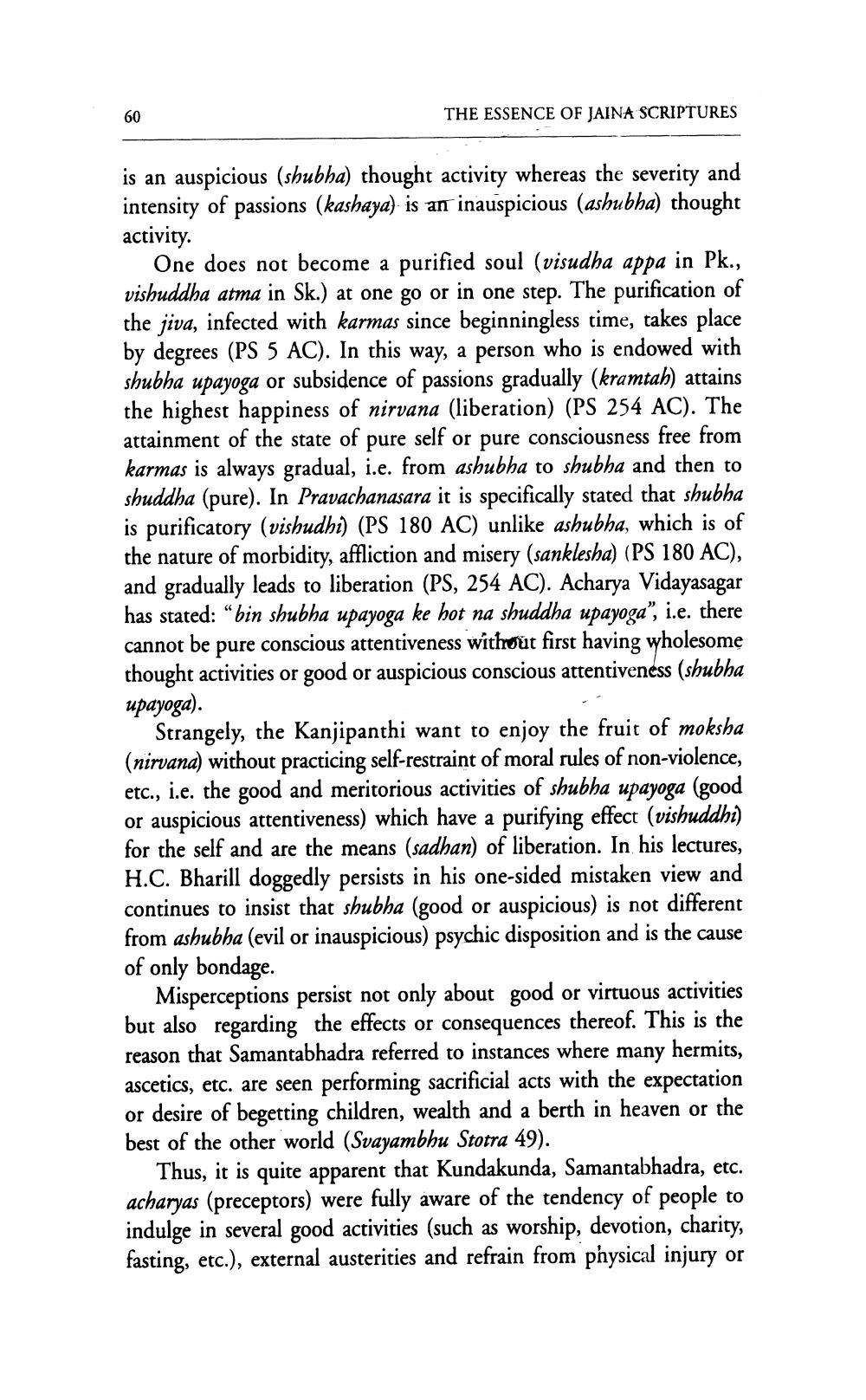________________
THE ESSENCE OF JAINA SCRIPTURES
is an auspicious (shubha) thought activity whereas the severity and intensity of passions (kashaya) is an inauspicious (ashubha) thought activity.
One does not become a purified soul (visudha appa in Pk., vishuddha atma in Sk.) at one go or in one step. The purification of the jiva, infected with karmas since beginningless time, takes place by degrees (PS 5 AC). In this way, a person who is endowed with shubha upayoga or subsidence of passions gradually (kramtah) attains the highest happiness of nirvana (liberation) (PS 254 AC). The attainment of the state of pure self or pure consciousness free from karmas is always gradual, i.e. from ashubha to shubha and then to shuddha (pure). In Pravachanasara it is specifically stated that shubha is purificatory (vishudhi) (PS 180 AC) unlike ashubha, which is of the nature of morbidity, affliction and misery (sanklesha) (PS 180 AC), and gradually leads to liberation (PS, 254 AC). Acharya Vidayasagar has stated: “bin shubha upayoga ke hot na shuddha upayoga”, i.e. there cannot be pure conscious attentiveness without first having wholesome thought activities or good or auspicious conscious attentiveness (shubha upayoga).
Strangely, the Kanjipanthi want to enjoy the fruit of moksha (nirvana) without practicing self-restraint of moral rules of non-violence, etc., i.e. the good and meritorious activities of shubha upayoga (good or auspicious attentiveness) which have a purifying effect (vishuddhi) for the self and are the means (sadhan) of liberation. In his lectures, H.C. Bharill doggedly persists in his one-sided mistaken view and continues to insist that shubha (good or auspicious) is not different from ashubha (evil or inauspicious) psychic disposition and is the cause of only bondage.
Misperceptions persist not only about good or virtuous activities but also regarding the effects or consequences thereof. This is the reason that Samantabhadra referred to instances where many hermits, ascetics, etc. are seen performing sacrificial acts with the expectation or desire of begetting children, wealth and a berth in heaven or the best of the other world (Svayambhu Stotra 49).
Thus, it is quite apparent that Kundakunda, Samantabhadra, etc. acharyas (preceptors) were fully aware of the tendency of people to indulge in several good activities (such as worship, devotion, charity, fasting, etc.), external austerities and refrain from physical injury or




